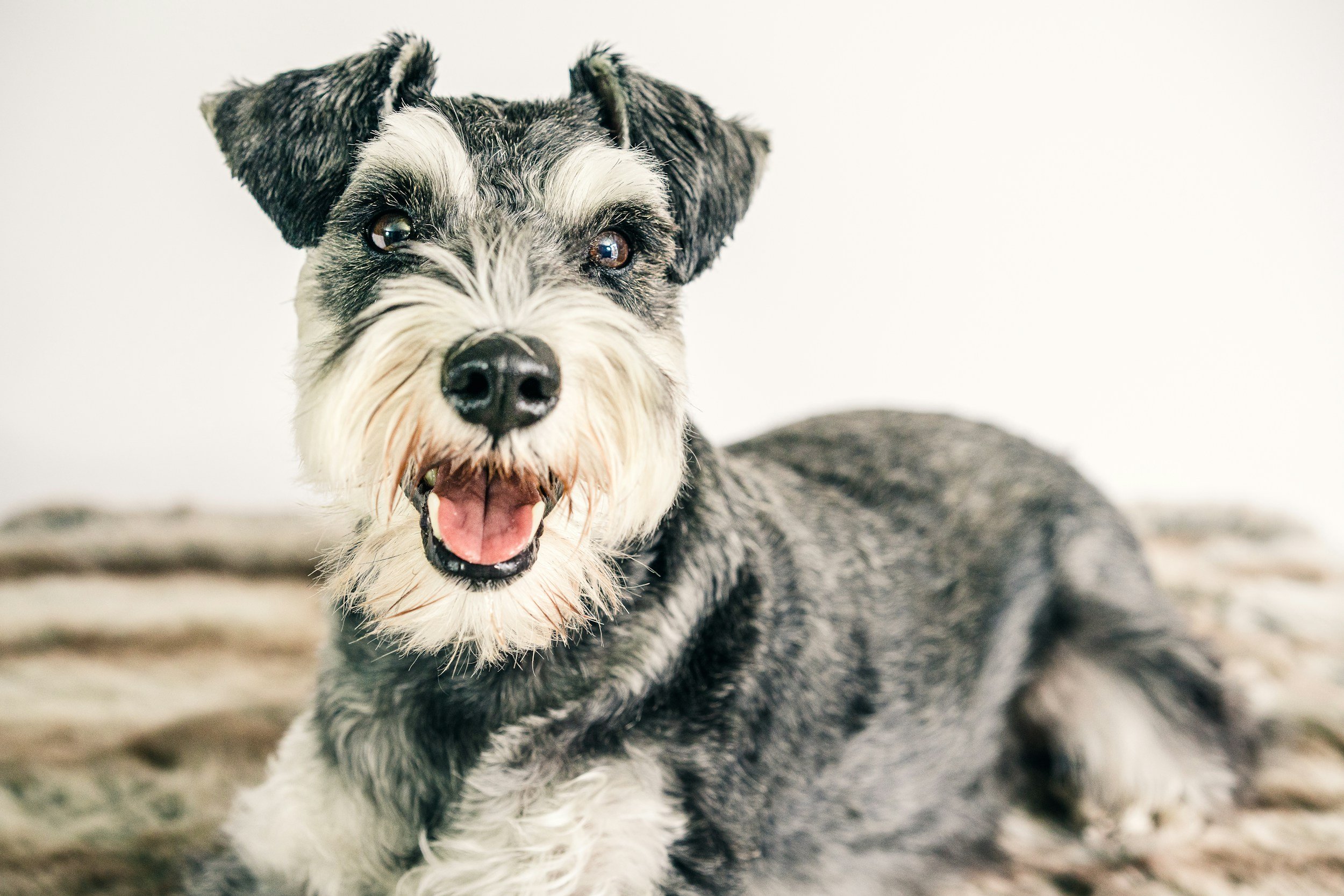
Scottish Terrier
The Scottish Terrier, affectionately known as the "Scottie," originated in Scotland and was bred as a working terrier to hunt small game such as foxes and badgers. Recognized for their dignified and independent demeanor, Scotties are known for their distinct appearance, featuring a wiry coat, bushy eyebrows, and a prominent beard. Loyal and affectionate with their families, they have become a popular breed worldwide.
Fun Fact!
Scottish Terriers have graced pop culture, appearing as one of the original Monopoly game pieces and as a companion to several U.S. presidents, including Franklin D. Roosevelt!
Overall
Scottish Terriers are confident, loyal, and dignified dogs that make excellent companions for individuals or families. They require regular grooming, moderate exercise, and consistent training, but with proper care, they are loving and devoted pets that bring joy and companionship to their owners.
Essential information
-
Qualities
Loyal and Affectionate
Scotties form strong bonds with their families and are loving companions.
Good Watchdogs
They are alert and protective, making them excellent watchdogs.
Compact and Adaptable
Their small size makes them suitable for both apartments and houses with yards.
Independent Nature
They are relatively low maintenance in terms of attention compared to more demanding breeds.
-
Considerations
Stubborn and Independent
Scotties can be headstrong, which may pose challenges during training.
Prone to Health Issues
They are predisposed to certain genetic conditions, such as "Scottie Cramp" and bladder cancer.
Moderate Grooming Needs
Their wiry coat requires regular grooming and occasional professional trimming.
Not Always Social with Other Dogs
Scotties may be territorial and require early socialization to get along with other pets.
-
Exercise & Training
Exercise Needs
Scotties require moderate exercise to stay healthy and happy. They enjoy daily walks and playtime but are not as high-energy as some other terrier breeds.
Walks
Scottish Terriers benefit from one or two short walks per day, along with indoor or yard playtime. They enjoy exploring and engaging their hunting instincts in secure environments.
Training
Scotties are intelligent but independent, which can make training a challenge. Positive reinforcement methods work best, and early obedience training is essential to establish boundaries. Patience and consistency are key to managing their stubborn streak.
-
Cost
Purchase Price
$2,500 - $5,000 AUD depending on breeder and lineage.
Initial Setup
Around $400 - $700 AUD. (crate, bed, toys, etc.)
Food
Approximately $600 - $1,000 AUD per year, depending on dietary needs.
Grooming
Professional grooming every 6-8 weeks can cost around $600 - $800 AUD per year. Regular at-home brushing is essential to maintain their coat.
Vet Bills
Initial vaccinations, microchipping, and desexing can cost around $500 - $1,000 AUD. Ongoing annual check-ups and preventive care could cost $400 - $700 AUD per year, with additional expenses for managing potential genetic conditions.
Total Lifetime Cost
Over an 11-13 year lifespan, the total cost of ownership can range from $20,000 - $35,000 AUD, depending on health and lifestyle factors.
-
Characteristics
Size and Weight
Scottish Terriers typically stand 25-28 cm (10-11 inches) tall and weigh between 8.5-10.5 kg (18-23 lbs).
Coat
They have a dense, wiry double coat that protects them in harsh weather. Regular grooming is necessary to prevent matting and maintain their distinctive appearance.
Colour Options
Scotties come in a variety of colors, including black, brindle, and wheaten.
Temperament
Scottish Terriers are known for their confident, dignified, and independent temperament. While they are affectionate with their families, they can be reserved with strangers. Scotties are alert and protective, making them good watchdogs. They are intelligent but can be stubborn, requiring consistent training and leadership.
Good with Children
Scotties can be good with older children who understand how to interact respectfully with dogs. However, they may not tolerate rough handling from very young children. Interactions.
Socialisation
Early socialization is important to help Scotties become well-adjusted and comfortable around new people, pets, and environments. Proper socialization helps reduce territorial behavior and potential aggression toward other dogs.
-
Living Environment Suitability
Indoors vs. Outdoors
Scotties prefer to live indoors with their families but enjoy regular outdoor time for exercise and exploration. They are not suited for full-time outdoor living due to their need for companionship and protection from extreme weather.
Apartment Living
Scottish Terriers can adapt well to apartment living due to their small size and moderate exercise needs. However, they still require daily walks and mental stimulation.
Time Alone
Scotties can tolerate being alone for moderate periods but may become bored or anxious if isolated for extended periods. Providing toys and activities can help keep them entertained when left alone.
Climate Adaptability
Scottish Terriers can adapt to various climates, but their wiry coat offers some protection against cold weather. In warmer regions, it’s important to provide plenty of water, shade, and avoid exercising them during the hottest parts of the day.
-
Healthcare
Common Health Issues
Scottish Terriers are prone to certain health conditions, including, Scottie Cramp (a hereditary disorder affecting movement), Bladder cancer, Von Willebrand’s disease (a bleeding disorder), Skin allergies. Regular vet check-ups, a balanced diet, and appropriate exercise are essential for maintaining their health.
Ethical Breeding Considerations
Due to their predisposition to certain genetic conditions, it is important to purchase from a reputable breeder who conducts health screenings. Ethical breeding practices help reduce the risk of hereditary health problems and ensure the well-being of the puppies.
-
Additional info
Guarding Ability
Scotties are naturally alert and protective, making them excellent watchdogs. They may bark to alert their owners of strangers or unusual activity.
Affectionate Nature
Despite their independent streak, Scotties are loyal and enjoy spending time with their families. They are known for their strong bond with their owners.
Suitability for Dog Parks
Scottish Terriers can be territorial and may not always get along with other dogs in a dog park setting. Early socialization helps improve their interactions with other pets.





